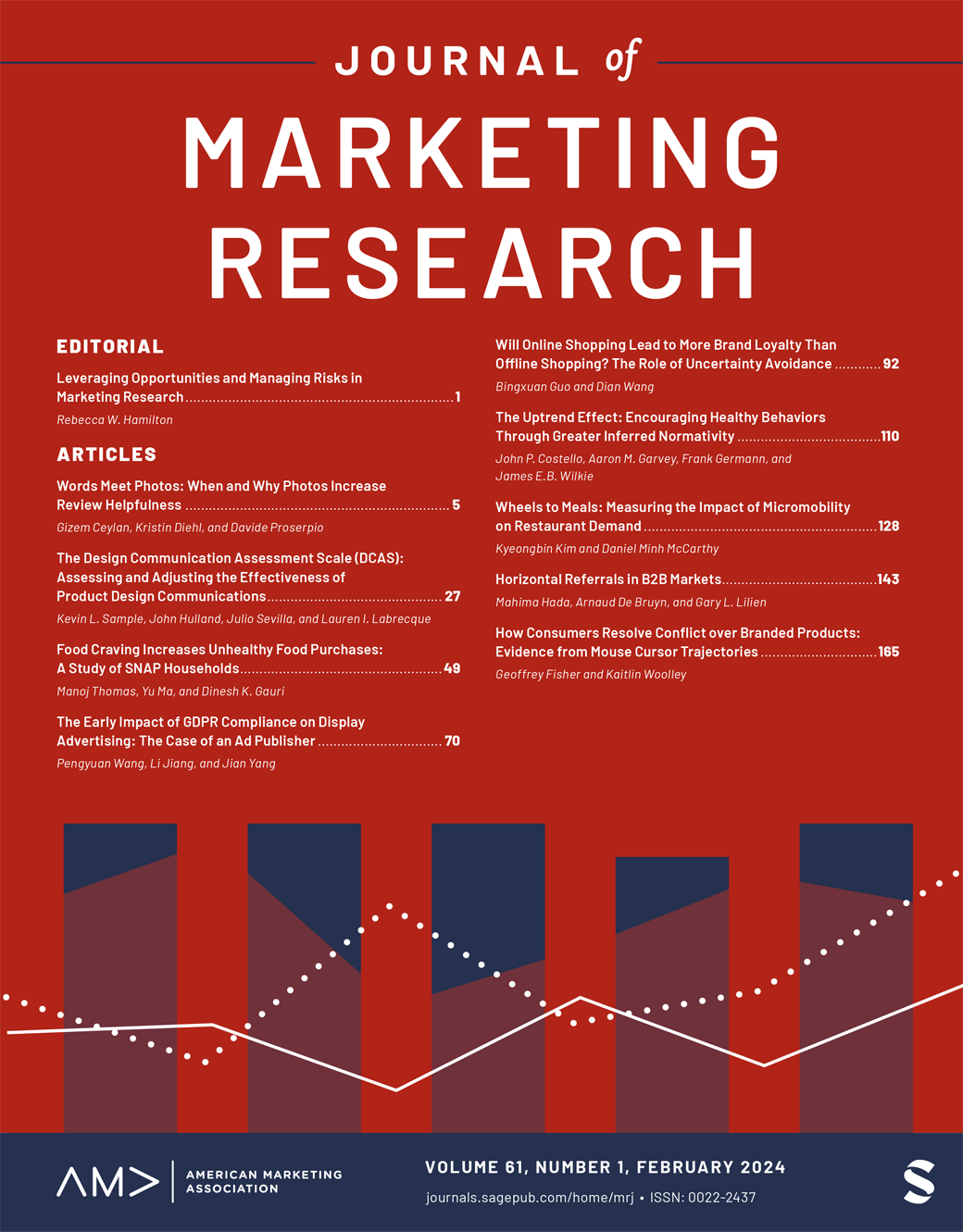在追求目标的过程中,我认为灵活性是我的最佳选择,但不是你的最佳选择
IF 5
1区 管理学
Q1 BUSINESS
引用次数: 1
摘要
消费者经常试图改善自己。这项研究考察了消费者在追求目标的过程中,如何为自己和他人考虑灵活性。灵活性包括留下计划的细节,比如什么时候去健身房或吃什么,开放或易于更改,而严格的计划则提前决定这些细节。在这里,几项针对各种目标的研究表明,人们通常会为他人选择僵化的计划。然而,人们更有可能在自己的计划中选择一些灵活性。之所以会出现这种情况,是因为许多人认为灵活的计划比僵化的计划效果较差,但也更具吸引力(或不那么令人不快)。为自己选择,而不是为他人选择,会增加一个人遵从自己内心的程度(即,依赖于感觉和欲望),这使人们更有可能选择更具吸引力的选择,即灵活性。相反,要求人们“听从自己的想法”(即依靠逻辑和理性)会导致人们为自己和他人选择类似的(僵化的)计划。最后,作者在实地实验中使用这个框架来增加对刚性健身计划的偏好。这项研究深入了解了灵活性的心理学,以及如何推动消费者为成功做好准备。本文章由计算机程序翻译,如有差异,请以英文原文为准。
In Goal Pursuit, I Think Flexibility Is the Best Choice for Me but Not for You
Consumers regularly attempt to improve themselves. This research examines how consumers think about flexibility during goal pursuit, for themselves and others. Flexibility involves leaving details of a plan, such as when to go to the gym or what to eat, open or easy to change, whereas rigid plans determine those details in advance. Here, several studies across a variety of goals show that people usually choose rigid plans for others. However, people are more likely to opt for some flexibility in their own plans. This occurs because many people believe flexible plans are less effective, but also more appealing (or less unpleasant), than rigid ones. Choosing for oneself, versus for someone else, increases the degree to which one follows one's heart (i.e., relies on feelings and desires), which makes people more likely to choose the more appealing option, flexibility. Asking people to “follow their heads” instead (i.e., rely on logic and reason) causes people to choose similar (rigid) plans for themselves and others. Finally, the authors use this framework to increase preferences for rigid fitness plans in a field experiment. This research provides insight into the psychology of flexibility and how to nudge consumers to set themselves up for success.
求助全文
通过发布文献求助,成功后即可免费获取论文全文。
去求助
来源期刊

Journal of Marketing Research
BUSINESS-
CiteScore
10.30
自引率
6.60%
发文量
79
期刊介绍:
JMR is written for those academics and practitioners of marketing research who need to be in the forefront of the profession and in possession of the industry"s cutting-edge information. JMR publishes articles representing the entire spectrum of research in marketing. The editorial content is peer-reviewed by an expert panel of leading academics. Articles address the concepts, methods, and applications of marketing research that present new techniques for solving marketing problems; contribute to marketing knowledge based on the use of experimental, descriptive, or analytical techniques; and review and comment on the developments and concepts in related fields that have a bearing on the research industry and its practices.
 求助内容:
求助内容: 应助结果提醒方式:
应助结果提醒方式:


